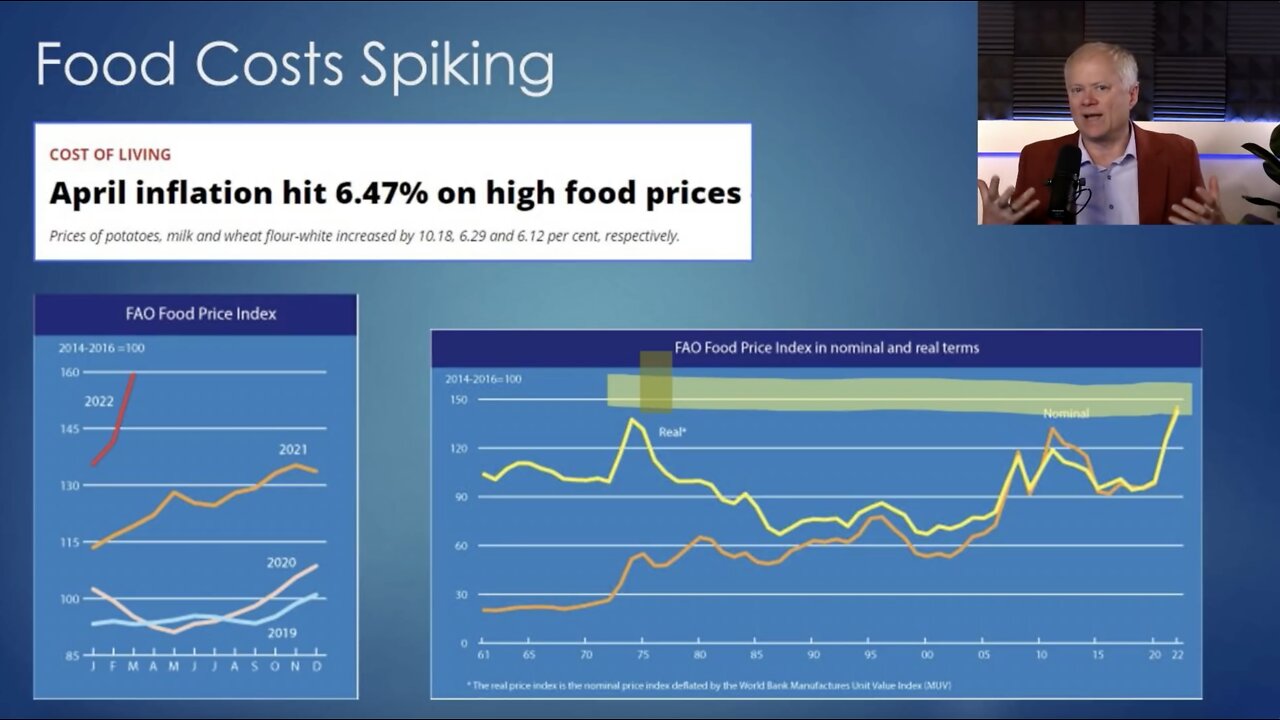Premium Only Content

Dr. Chris Martenson - Will You Starve to Death This Year?
April 03, 2022
Source: www.youtube.com/watch?v=OVLgVWf2s9U&t=397
Part 2 found here:
www.peakprosperity.com
The economy does not produce energy. It uses energy. It depends on energy. No energy = no economy. It’s a very simple equation really, and one that is easily intuited.
But somehow, we have unserious people making unserious decisions that will have entirely serious consequences and I’d like you to avoid them as much as possible.
Currently, diesel prices in the U.S. and Europe are signaling that serious shortages are now upon the western world. What does this mean?
Well, it simply means that less diesel will be used than before. High prices and actual shortages tend to have that effect. Which products or services will be diminished as a result? That I cannot say. Nobody can because our economy is actually a complex system which means it is inherently unpredictable.
Millions of independent decisions made by producers, consumer and transportation companies will combine into some sort of new behaviors. All we can do is know they are coming and watch them as they emerge.
For example, who could have predicted the sequence of events that caused natural gas to skyrocket in price leading key fertilizer companies all over the world to limit their production, if not shut it down entirely? How was it possible that various governments merely shrugged at this outcome and let it happen without using some of their free-spending habits to shore up this critical, vital component of farm productivity?
It would all be comically bad theater if it weren’t so deadly serious.
This fertilizer shortage – again, expressed as skyrocketing prices because supply, demand and price all balance out – has now translated into critical spring farming applications not being carried out, which in turn will result in massive food shortages and starvation later this year.
How bad will it be? We don’t know yet, but the early estimates place the yield declines at anywhere from 10% (for rice) to as much as 40% for Peru’s output.
To put this in context, note that each year supply and demand are very tightly balanced, and usually match each other with only a very low single-digit percentage variance.
A 10% decline in yields would be devastating. A 40% decline would be apocalyptic. Anything in between and you can pick your own adjective.
Just as bad, and another piece of the puzzle few consider, is that while the weight of the harvest may only be down 10%, the decline in food quality may be as troublesome. Failing to fertilize spring wheat will result in a decline in its protein content leading to a much poorer food stuff.
Add it all up and what do we have? You need to plant a garden. Please. I’ve been saying this for a couple of years now, and I think the fact that global publications are all now mentioning food shortages should be sufficiently motivating to all.
Please. Plant a garden. Even a few planter boxes on a balcony.
-
 8:51
8:51
Right2Freedom
1 year agoDr. Kory speaks to Emerald Robinson after major lawsuit victory
4.43K4 -
 8:01
8:01
MattMorseTV
7 hours ago $1.32 earnedTrump just DROPPED a BOMBSHELL.
8.17K26 -
 1:34:52
1:34:52
Glenn Greenwald
5 hours agoIs There Evidence of Epstein's Ties to Israel? Yes: Ample. Brazil's Chief Censor Orders Rumble to Ban US Citizen and Turn Over Data | SYSTEM UPDATE #486
102K77 -
 4:10:15
4:10:15
Sgtfinesse
4 hours ago✅ Dune: Awakening | The Storm is Here
110 -
 LIVE
LIVE
VapinGamers
1 hour agoDivision 2 Community Game Night Pistol Challenge and Theory Gear Builds! - !rumbot
43 watching -
 1:05:16
1:05:16
BonginoReport
5 hours agoMore Questions Than Answers After Assassination Attempt Anniversary - Hayley Caronia (Ep.89)
145K88 -
 LIVE
LIVE
EzekielMaxwellVT
2 hours agoVTuber/VRumbler - Clair Obscure: Expedition 33 - Bad time to have Thalassaphobia
69 watching -
 1:12:52
1:12:52
Kim Iversen
6 hours agoTucker Calls Out Israeli Blackmail — GOP Reels Into Civil War
114K192 -
 LIVE
LIVE
RamrodJenkins
5 hours agoBack from vacation! I've missed you all!
29 watching -
 57:19
57:19
Candace Show Podcast
6 hours agoTrump Gone Wild! Is Jeffrey Epstein Even Dead? | Candace Ep 215
117K350